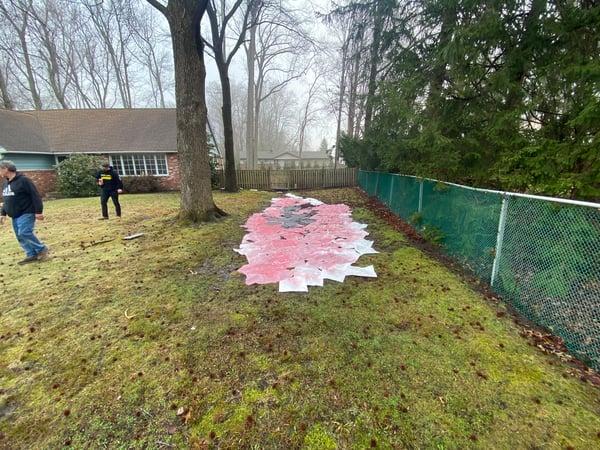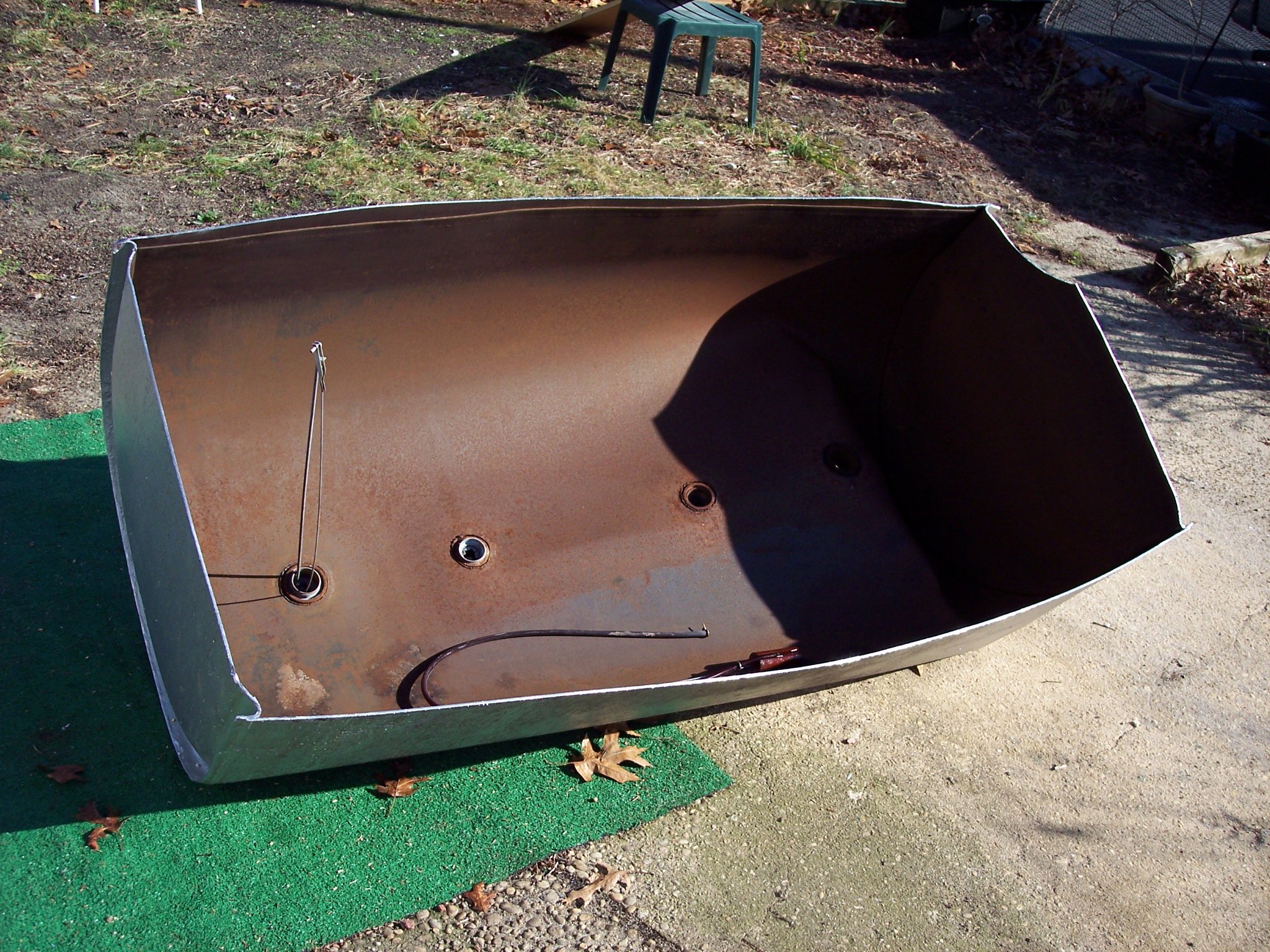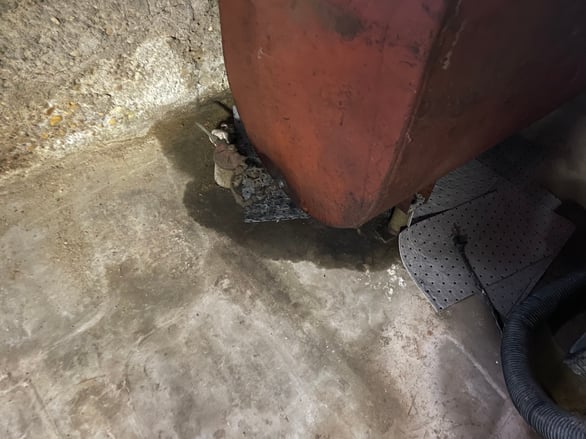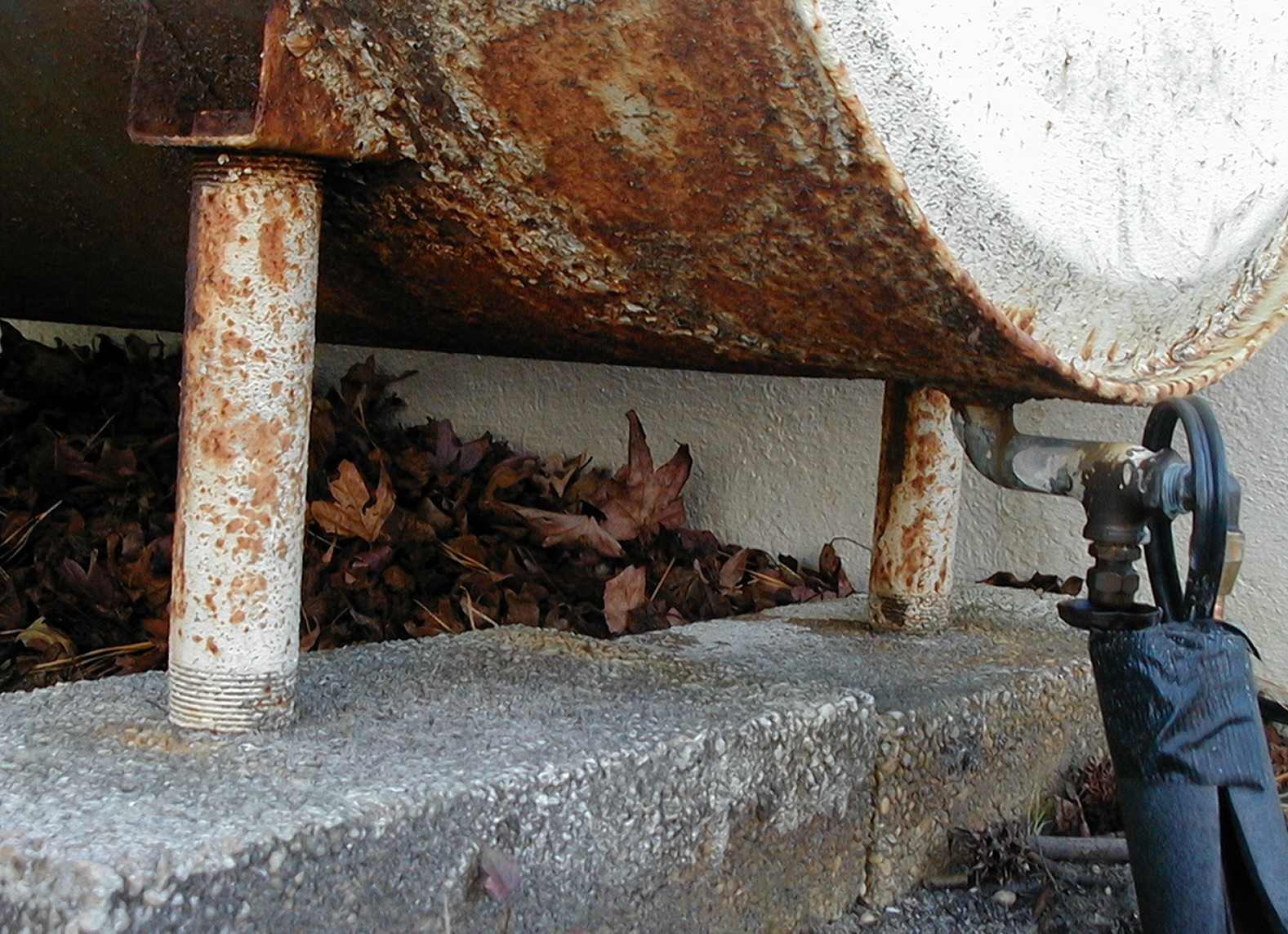Rust never sleeps, your above ground oil tank, either in your basement or outside will corrode not just on the outside, but from the inside out. Nothing lasts forever and it is estimated that over 80% of aboveground heating oil tanks are beyond their designed life expectancy. Those that are storing oil in vessels, will likely have that vessel fail without notice. Your smoke alarm will chirp when the battery is low, your oil tank will leak without such notification.
The photo below is from a crawlspace tank that leaked, the oil ran to the crawlspace sub pump where it was discharged to the backyard. The red you see is oil, heating oil is dyed red for identification. This oil leaked from an interior AST, oil ran to a sub pump which pumped oil and water outside, about $50,000 to cleanup.

What does an Aboveground Tank Leak?
Water damage and condensation are two of the most common reasons that cause a tank to rust. Outside, your tank is exposed to rain, snow and ice. That can pile up on the tank during winter and can mean your aboveground tank stays in constant contact with water for months. In a basement, humidity (which also allows mold to grow) can corrode the tank shell, and moisture inside the tank will allows sludge to form that is acid and corrode the tank from the inside out. Yep, your oil tank is not lubricated on the inside.
This is the inside of an oil tank, all the rust-colored metal, its rust people inside the tank rust.


Winter is the most popular time for an oil tank to fail. It is common when the weather changes that metal expands and contracts, opening up corrosion points in the tank shell and oil leaks. This is very common in the Northeastern United States from January through Spring. You see the metal of the tank contracts in winter with the cold, warm days allows the metal to expand. This contraction and expansion happens on the liquid in the tank as well as on the tank shell. In areas where the metal has rusted (think layers of an onion) this movement can allow the integrity of the tank to be breached. We see this every winter, some tanks are in use so hundreds of gallons of oil putting pressure against the shell of the tank further stresses the corrosion of the tank. Fortunately sometimes these leaks start as a slow drip, other times as a steady stream of oil, as more and more oil moves through the corrosion holes, the holes get bigger.
Free Consultation
888-301-1050
The extreme temperatures that occur during the winter can also cause problems. Over time, rapid heating and cooling can cause cracks to form in the equipment, leading to leaks. Combined with moisture damage, one bad winter could mean you have to replace your tank, even if it’s still new.
How do you Know if Your Aboveground Tank is Leaking?
A leak in an above ground storage tank, or AST, can be determined in a few different ways. First, do you smell oil? Any home with oil heat can have a faint smell of oil (faint), but a strong oil odor, well that means fresh oil is leaking from the tank hence the strong odor. Even a small cap full of fuel oil has an extremely pungent odor. Discoloration of the floor below the tank is another easy cue that the tank has a leak. If you open your refrigerator and see milk on the shelf, its a safe bet to say the milk container is leaking. Outside your home if the grass is brown or dead by the tank, that s a sign oil has leaked. You can also do your own tank leak test. Simple DIY heating oil AST leak test, take a paper towel and run it along the bottom of the tank like you were polishing the tank. If you get any oil on the towel, well its leaking oil should be on the inside of the tank not the outside.
Now if the tank is like the one below, you will have a rough time wiping the tank due to all the rust. Well, this is a trick question because if you feel the corrosion, you should know the tank is rusting away and time to replace the tank.

Have tank Questions?
Want to remove a tank?
Call the experts
888-301-1050


